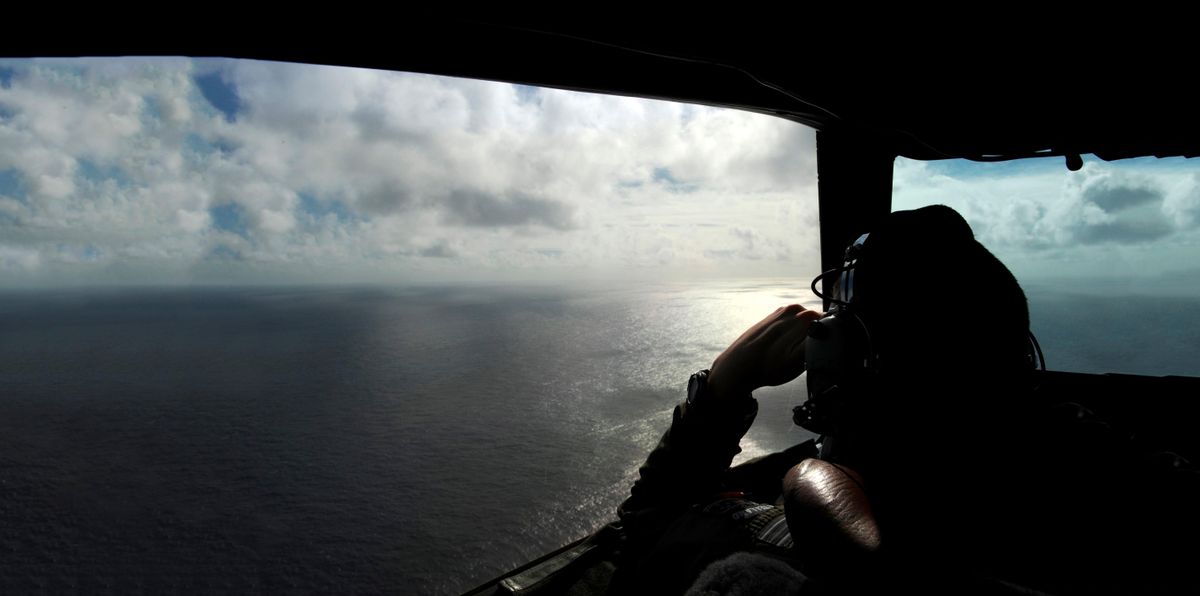Fariq knew he had to get the squawk code from Ho Chi Minh—but first he had to tune the radio to that frequency. This is about the time when, I think, a rapid decompression happened near or in the cockpit. It would have made a deep and startling noise, like a clap or the sound of a champagne bottle uncorking, only much, much louder and sharper. This would have been followed by a rush of air and things swirling everywhere. A white fog would have filled the space as the drop in temperature turned the moist cabin air into mist. The first officer would have realized immediately: This is an emergency. The denser air inside Fariq’s body would have rushed out through every orifice, an effect that can be particularly painful in the ears, as anyone who has flown with a head cold knows. His fingers, hands, and arms would have started to move spastically. Fariq would have struggled to understand this rapid change from normal to pandemonium while irretrievable seconds of intellectual capacity ticked away. Emergency, have to get down, have to let someone know. What first? He would have reached over to the transponder to enter 7700, the four digits that will alert everyone on the ground and in the air that something has gone wrong with the plane. His fingers would still have been trembling as he clutched the small round knob on the bottom left of the device and turned it to Standby. It is not what he would have intended, but he would already have begun to lose his mental edge. In an attempt to transmit a message of distress, he would have inadvertently severed the only means air controllers had of identifying his airplane and the details of his flight.
I find it logical to assume that Zaharie visited the business class bathroom near the flight deck, which is also used by the flight crew. Airline bathrooms have a drop-down mask to provide oxygen in the case of depressurization. Imagine what it would have been like for Zaharie to see the yellow plastic cup bob down. He had to make a choice: Try to get back to the cockpit without supplemental oxygen, or remain in the bathroom and wait for Fariq to get the airplane to a lower altitude and then rejoin him on the flight deck. I’m guessing Zaharie wasn’t confident in Fariq’s ability to handle the emergency and chose the former course of action. Pilots at Malaysia Airlines tell me that in a rapid decompression, it would have been very difficult for Captain Zaharie to get back onto the flight deck. The captain was unable to regain command of the airplane. If he had, things might have turned out differently.





www.airspacemag.com


www.airspacemag.com
